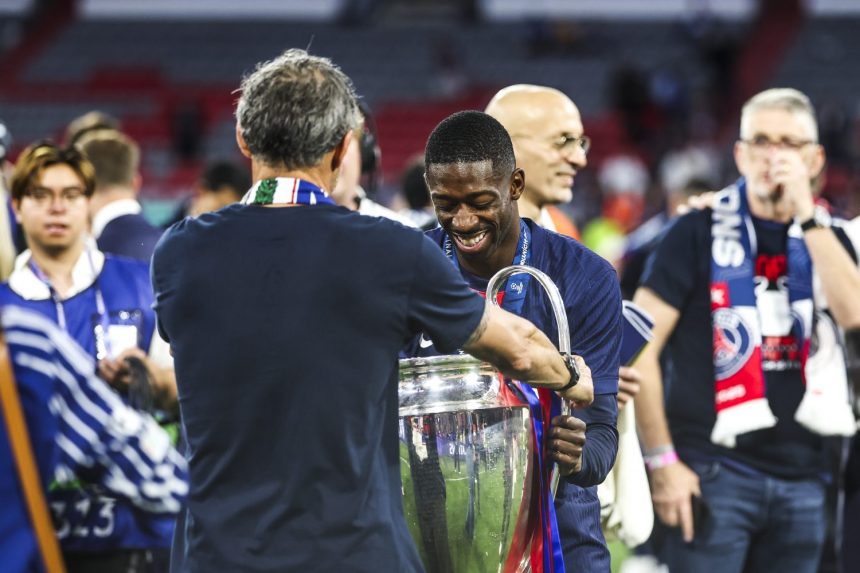Luis Enrique had an idea for the 2024-2025 season: to position Ousmane Dembélé in the center of Paris Saint-Germain’s attack. This proved to be a great success, both for the team and for the player himself. In an interview with Onze Mondial, the 28-year-old forward spoke about this new role and the “freedom” given to him by the Spanish coach.
Dembélé: “He’s a great coach with very good ideas.”
How has Luis Enrique changed your game? What’s your relationship with him like?
He gives me some advice. As for this central position, I’m familiar with it. If I’m playing centrally, I don’t play the same way as when I’m on the wing. Luis Enrique is a great coach with very good ideas. He’s given me a lot of freedom on the pitch. That’s something I like and enjoy.
Dembélé: “I’m all over the pitch.”
Goals or assists, which do you prefer?
(Smiling) I prefer goals to assists (laughs). Scoring goals is good. Especially when you’re a striker. People tell me, “Ousmane, you’re a striker,” but really, I’m all over the pitch. When you’re playing centrally, you have to score goals because the wingers create so many opportunities for you. You have to be ready to take advantage of those chances. These days, I definitely prefer scoring, especially when I’m playing centrally.
Do you consider yourself a goalscorer? A number 9?
I consider myself a player who can play freely on the pitch. I’m not a true number 9.
Dembélé: “It’s difficult to score goals.”
What’s harder: scoring or setting up goals? Zinedine Zidane said: “The hardest thing in football is scoring goals.”
I completely agree with him. He’s right, scoring goals is the most difficult thing in football. Otherwise, if it were easy, everyone would score 40 goals a season (he bursts into laughter). Scoring goals is difficult. I share Zidane’s point of view; there’s a lot of pressure when you’re in front of the goal. You need to have a good sense of positioning, you need to be well-placed, you need to shoot from the right area, you need to be focused, and so on. Scoring is much more difficult than passing. With a pass, you make the pass and you hope your teammate scores; it’s not the same thing.”
Dembélé had indeed already played centrally, notably with Luis Enrique at FC Barcelona. But he was initially seen as a winger, partly because he lacked effectiveness in front of goal. Also, he doesn’t fit the profile of a classic “number 9” striker. In fact, the French international emphasizes that this isn’t his role.
With a great deal of freedom, the PSG number 10 is able to express himself fully. He can drift into the midfield, run in behind the defense, combine with his teammates, and attack the defense with dribbling, all while being comfortable using both feet. He is therefore very unpredictable. More so than when he’s on the wing, which limits his options. Even though he remains, of course, dangerous as a winger. But we wouldn’t consider him as a player who should “stick to the touchline.”
Especially since Dembélé has developed a better sense of positioning and his shots are more accurate than before. Partly because he starts closer to the goal and is more focused at the end of his run. There is also a certain confidence that only comes with scoring goals. He has entered this positive cycle, and we hope to see him continue this trend. Not to mention, as he rightly points out, that scoring goals isn’t easy. It’s normal to miss some opportunities. The notion of a player or team being “inefficient” is sometimes exaggerated. But Dembélé has definitely taken his game to a higher level, and that’s a significant improvement for a player who has always been very creative.
